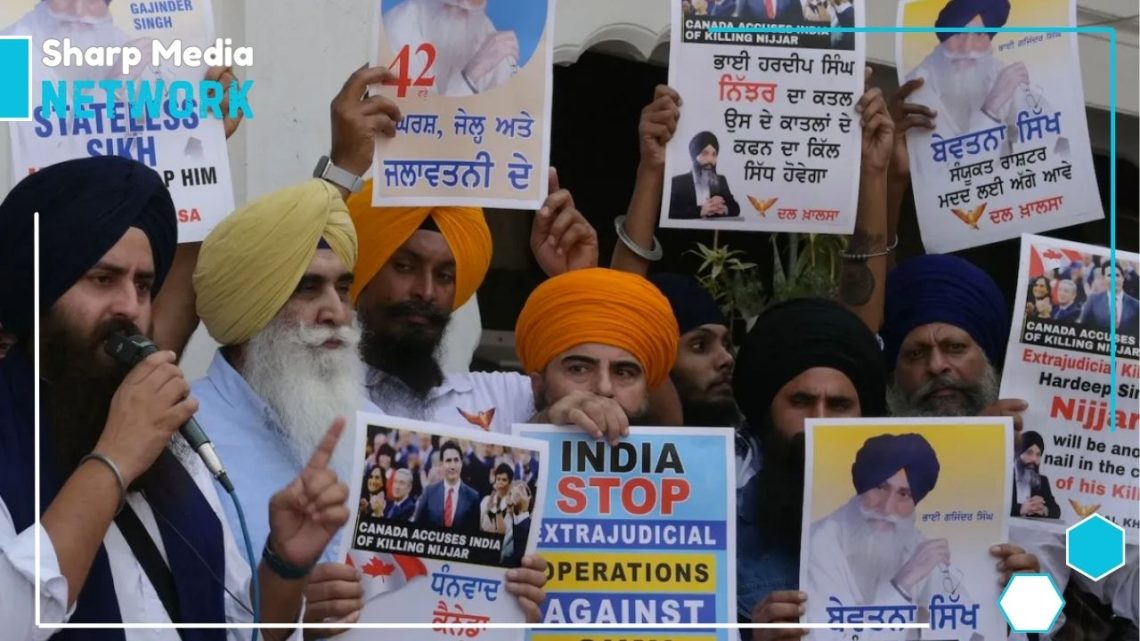
Exporting Oppression: How India’s Actions Endanger Global Sikh Communities
January 7, 2025What happens when a nation’s internal conflicts spill over its borders, threatening the safety of minority communities worldwide?
In an increasingly interconnected world, the domestic policies of powerful nations can ripple across continents, affecting communities far removed from the initial flashpoints. India’s ongoing suppression of its Sikh minority has crossed borders, endangering global Sikh communities and straining diplomatic relations. Recent actions involving the Khalistan movement and the involvement of international powers like Russia highlight the dangerous trajectory of India’s transnational repression.
A recent rally outside the Russian Embassy in London, organized by the Sikhs for Justice (SFJ), underscores the growing tensions between India and pro-Khalistan activists abroad. SFJ, an India-listed terror organization, accused Russia of collaborating with Indian intelligence to suppress Sikh activists advocating for Khalistan. Gurpatwant Singh Pannun, SFJ’s prominent leader, alleged that Russian media outlets RT India and Sputnik participated in disinformation campaigns against the Khalistan referendum. Pannun also accused Russian intelligence of sharing sensitive information with India’s Research and Analysis Wing (RAW), targeting Sikh activists in North America and Europe.
The implications of these allegations extend far beyond the Sikh diaspora. Pannun’s warning to Russia, threatening global protests at Russian consulates, signals a potential escalation of transnational tensions. This pattern of exporting domestic conflicts not only jeopardizes Sikh activists but also places host nations at risk of diplomatic friction and civil unrest.
India’s human rights record continues to draw international criticism. Reports from Human Rights Watch and the U.S. Department of State in 2023 highlighted arbitrary arrests, suppression of dissent, and curbs on religious freedom. Media censorship and crackdowns on free speech have become prevalent, reflecting a broader pattern of authoritarian governance. The Sikh community, both within India and abroad, finds itself at the center of these repressive policies.
The 2023 U.S. indictment linking an Indian national to a plot against a Sikh American activist exemplifies India’s export of domestic tensions. Similar incidents in Canada have strained diplomatic relations, showcasing India’s willingness to pursue dissenting voices beyond its borders. This expansion of internal conflicts onto foreign soil endangers the safety of Sikh communities in host countries, leaving them vulnerable to harassment and violence.
Allegations of Russia assisting India in targeting pro-Khalistan Sikhs reflect a troubling geopolitical alignment. The prospect of two powerful nations collaborating to suppress minority movements abroad raises alarms about the erosion of international norms. For global Sikh communities, this nexus signifies an increased threat to their safety, as foreign governments may become complicit in India’s domestic agenda.
India’s strategy of exporting repression poses a tangible risk to global Sikh communities, threatening their security and freedom. As nations navigate complex diplomatic landscapes, safeguarding minority rights and preventing the transnational spread of internal conflicts must remain a priority. Addressing these concerns is not only essential for protecting vulnerable communities but also for preserving international stability.

